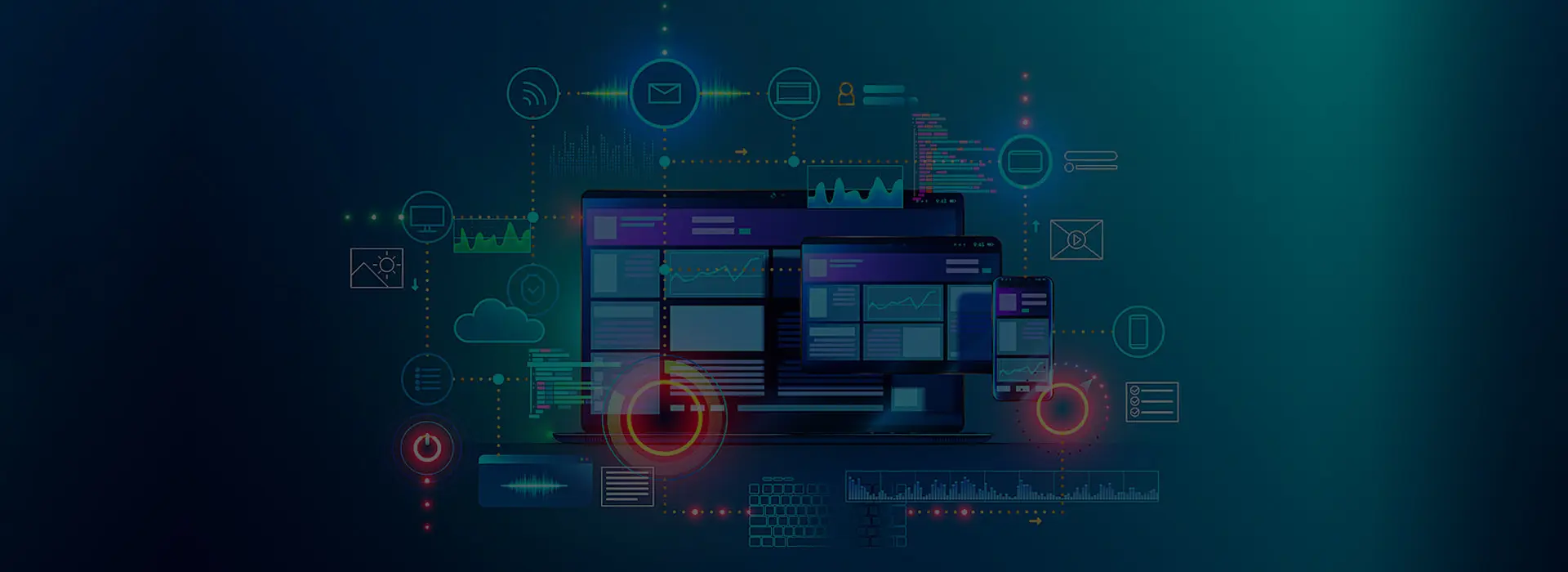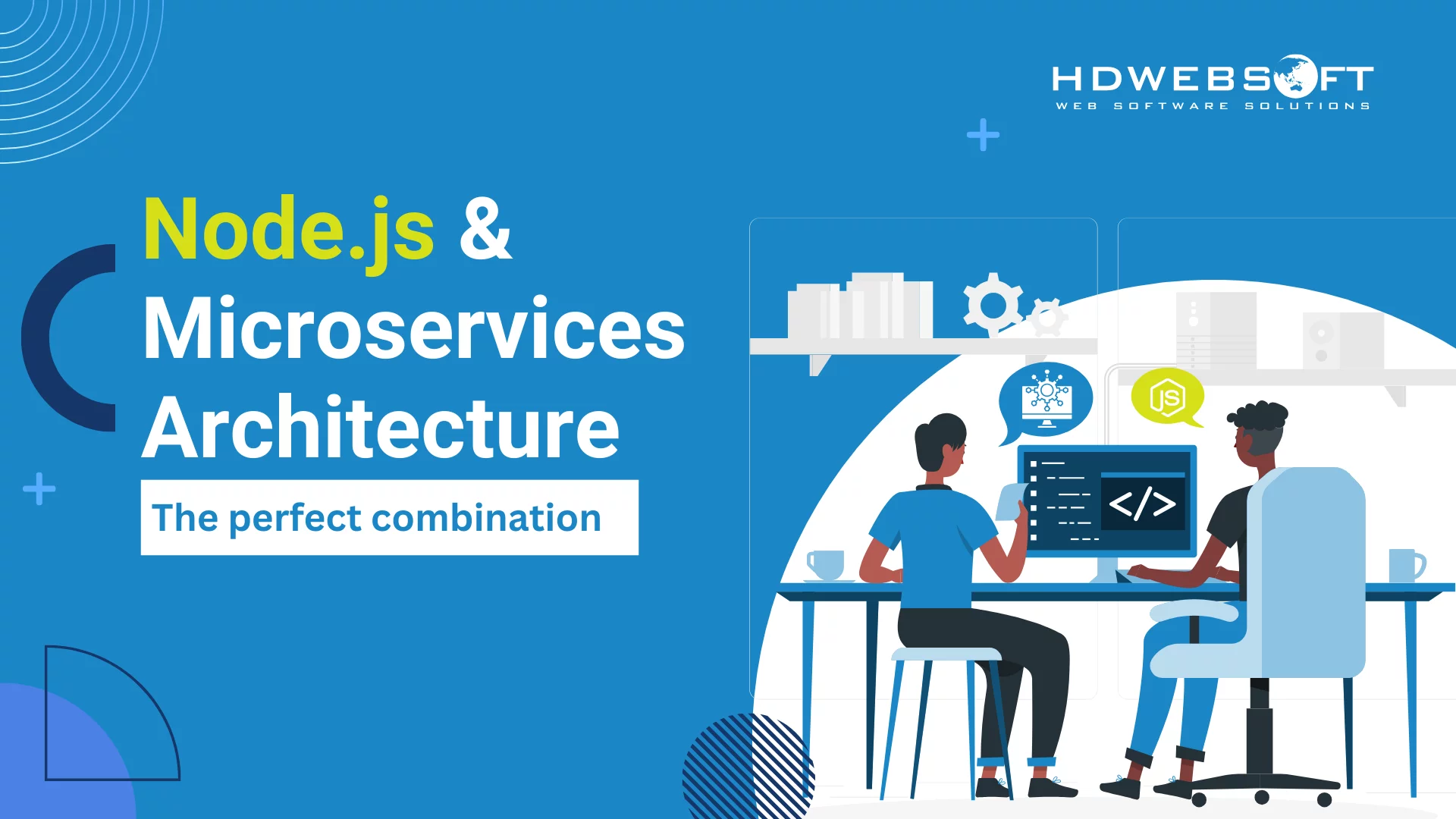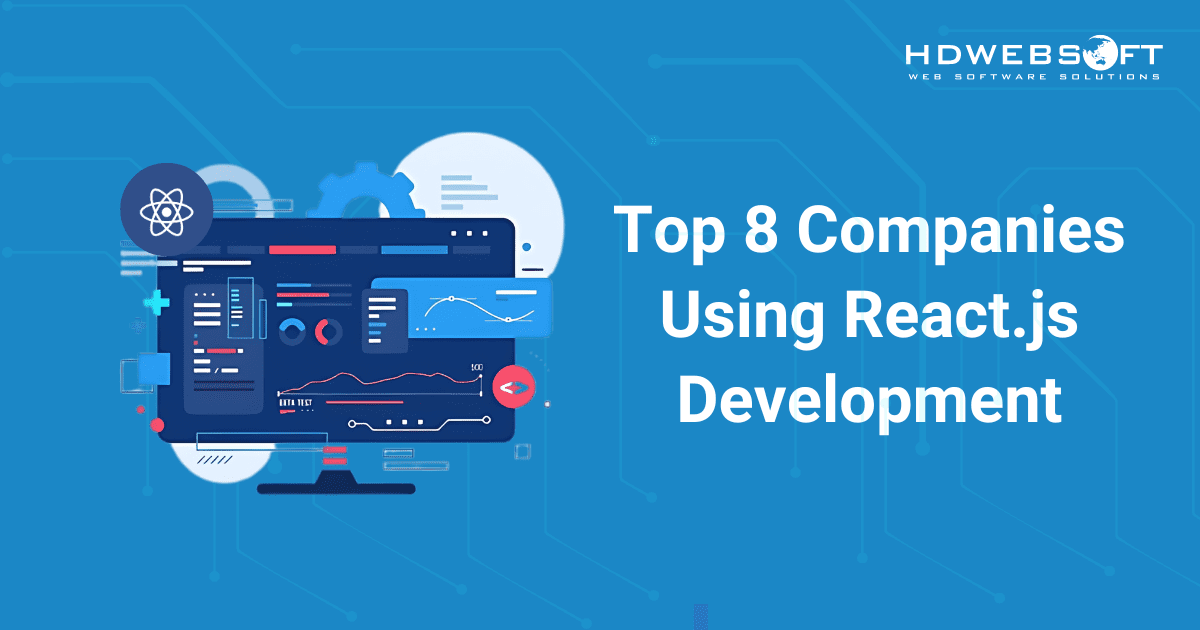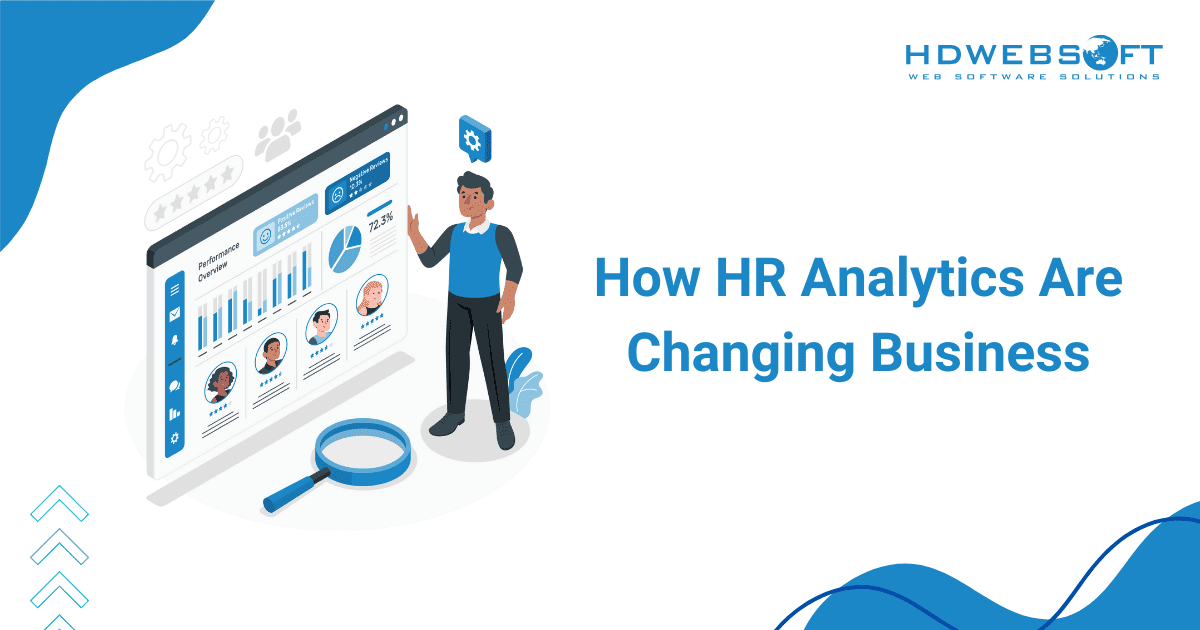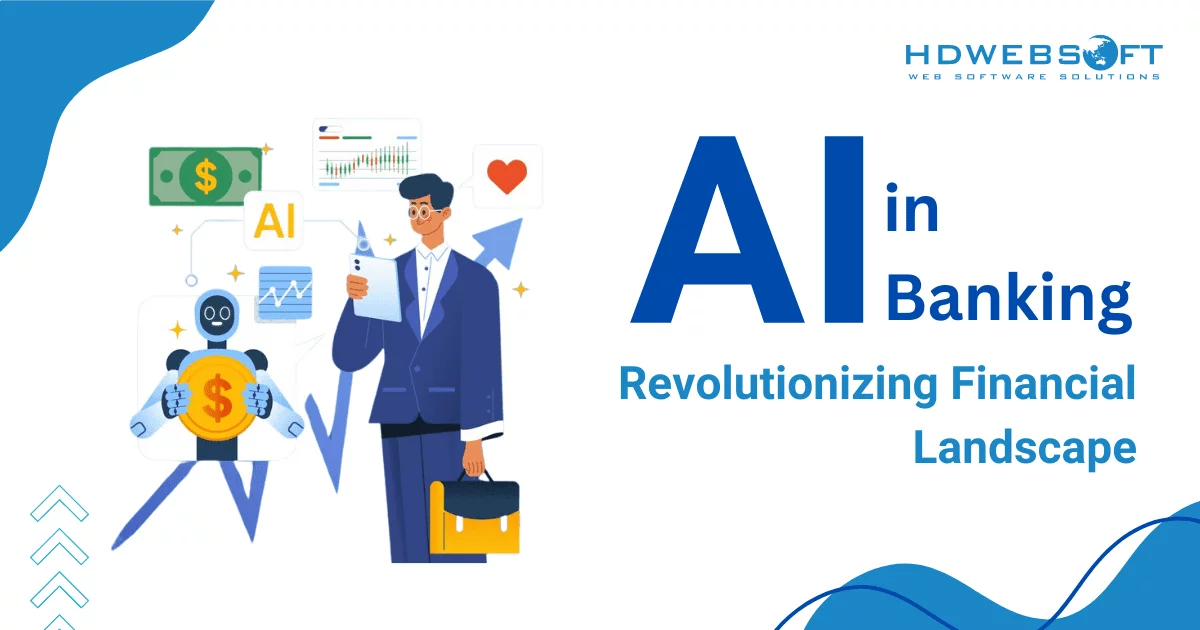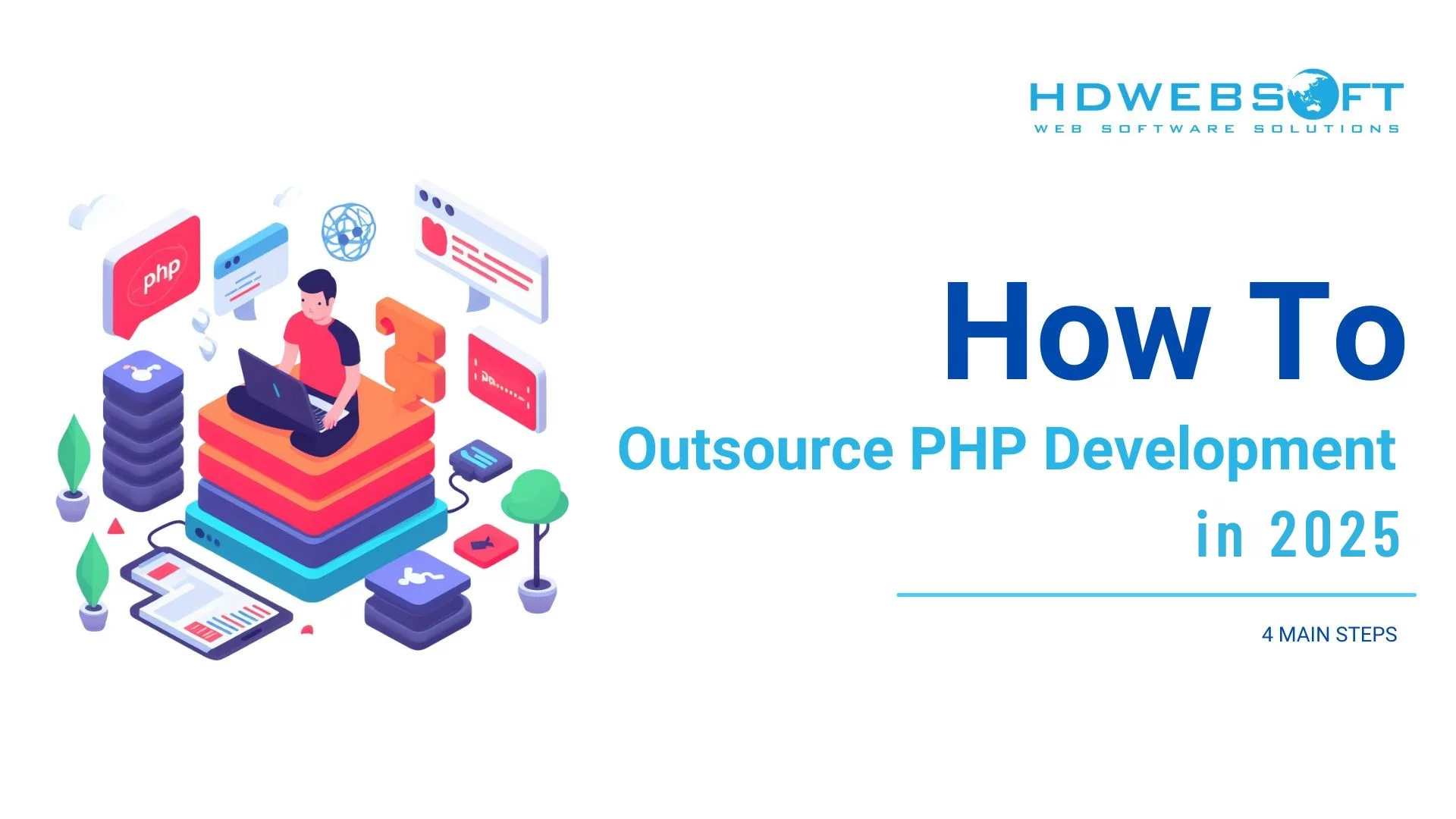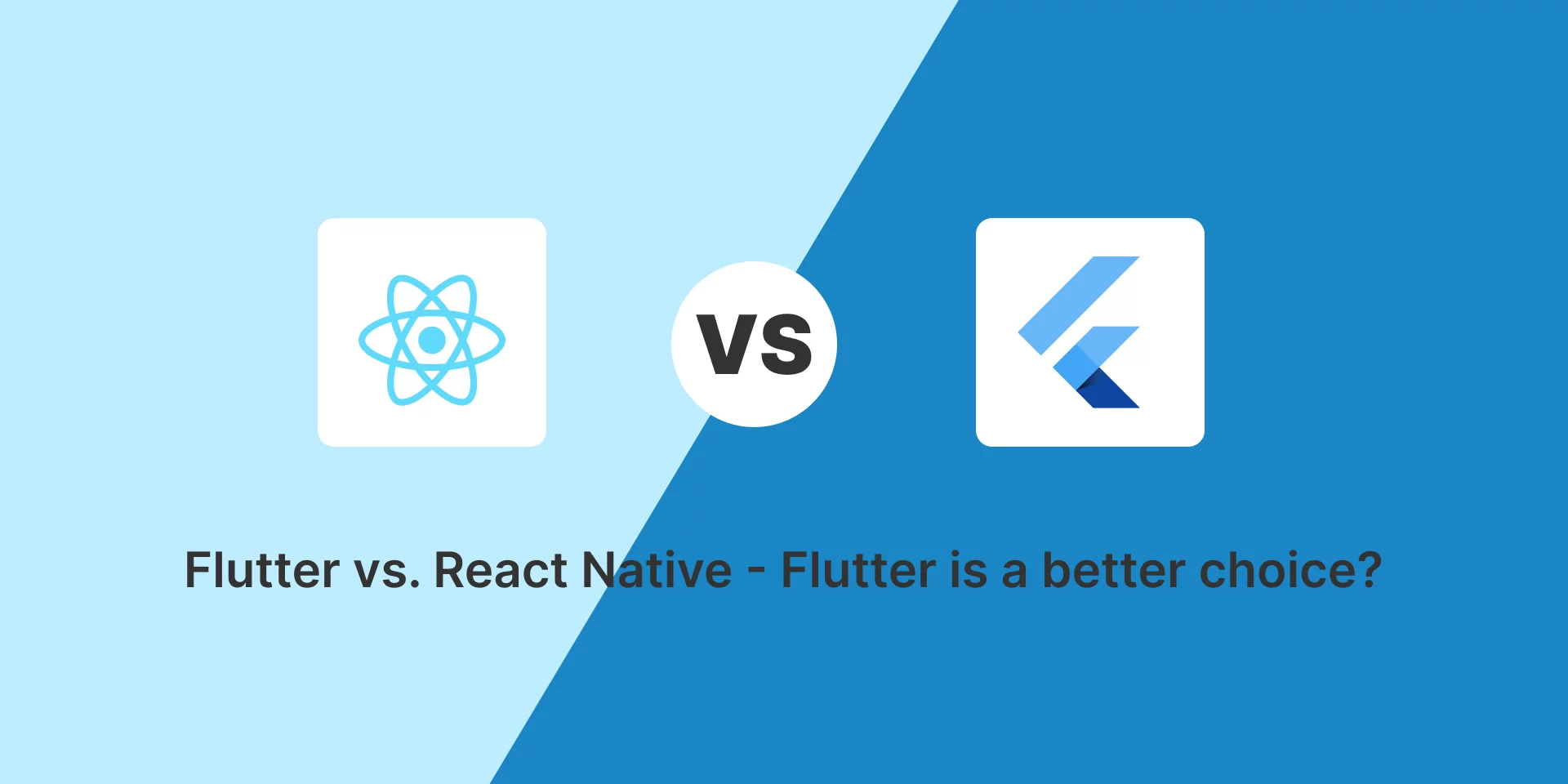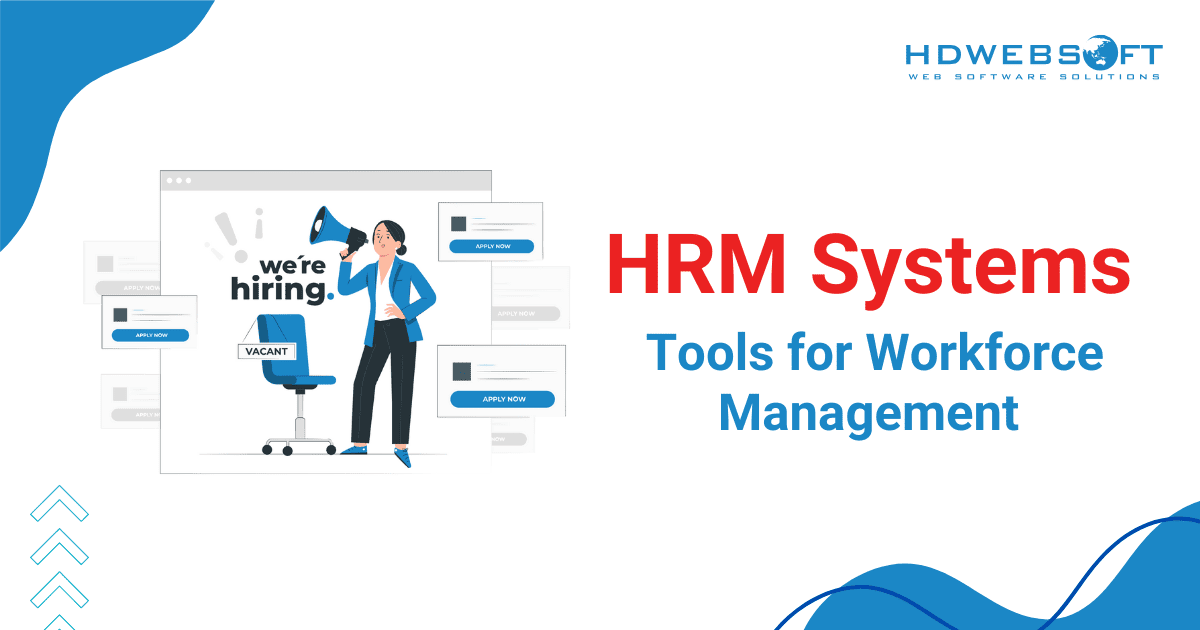
HRM Systems: Tools for Workforce Management
HRM systems have revolutionized Human Resource Management (HRM) by enabling businesses to manage their workforces through centralized solutions efficiently. As companies grow, handling employee data, payroll, recruitment, and performance evaluations can become overwhelming without the right tools. With this technology, businesses can streamline HR operations, making processes more efficient and organized.
In this blog, we’ll explore what HRM systems are and why businesses need them. In addition, we’ll show you how to identify the need for a new system, and a comparison of popular tools.
What is an HR Management System?
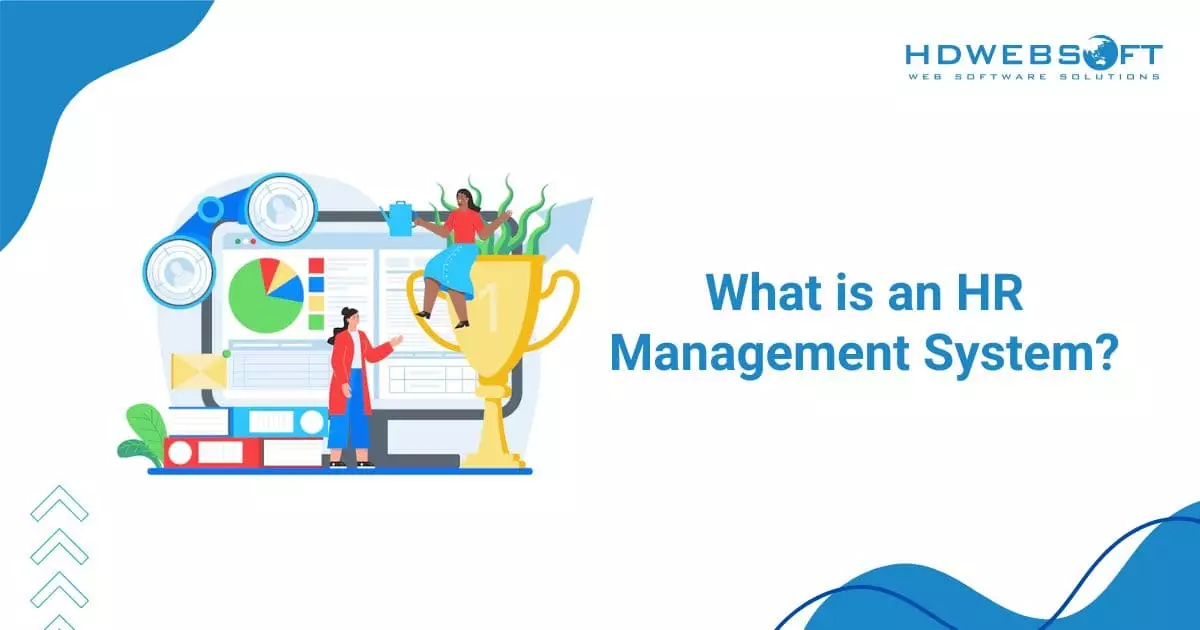
An HR Management System (HRMS) is a digital platform designed to streamline and manage various HR tasks within an organization. HRM systems integrate core HR functions into one cohesive system. As a desired result, it enhances productivity and reduces the manual workload for HR teams. By centralizing these processes, HRM systems help companies save time, minimize errors, and ensure compliance with regulatory standards.
HRMS also enhances decision-making capabilities through advanced analytics and reporting features. With these capabilities, it allows managers to gain insights into employee performance, turnover rates, and workforce trends. Using this information, businesses can improve their HR strategies, boosting employee satisfaction and reducing turnover.
According to a recent report, the HR technology market is projected to grow to 81.84 billion by 2032. This reflects the rising adoption of HRM tools across businesses worldwide. As expected, companies, from small startups to large enterprises, increasingly recognize the value of efficient HR processes.
Ultimately, not only do HRM systems simplify administrative tasks, they also support strategic initiatives. This makes them an invaluable resource for modern organizations looking to streamline HR operations and enhance overall workforce management.
Why do you need HRM systems?
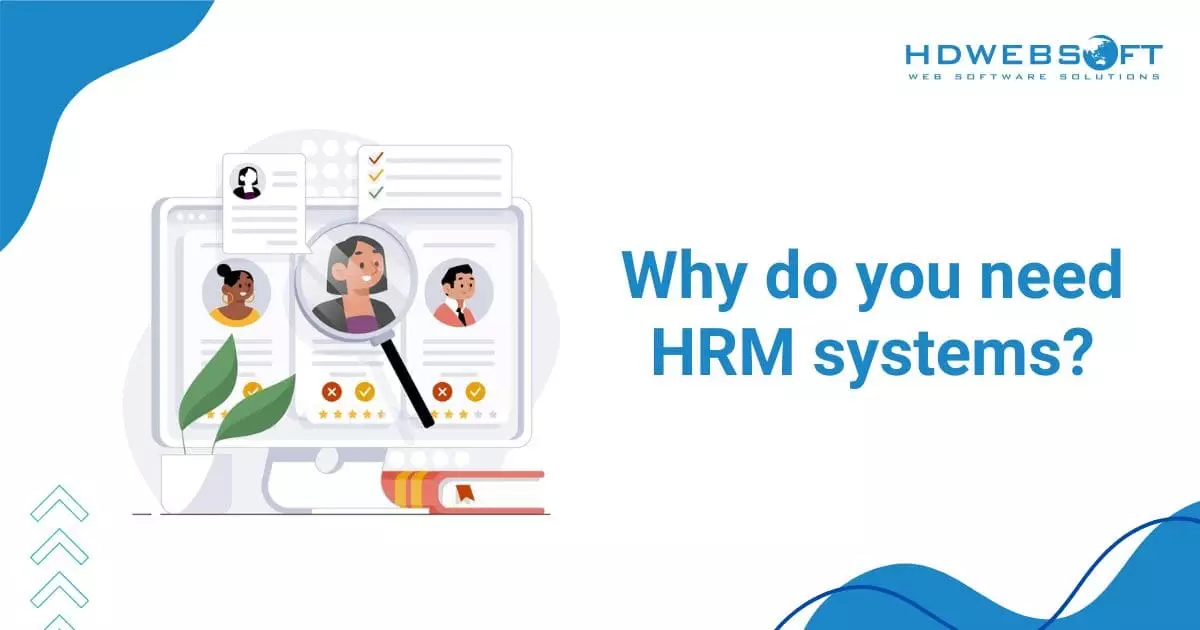
As businesses grow, so does the complexity of managing people. HR responsibilities can quickly become overwhelming without the right tools. Here’s why HRM systems are essential for modern organizations.
Streamlined Operations
One of the primary benefits of an HR management system is the ability to automate and streamline HR functions. Tasks like payroll, leave management, and benefits administration can be time-consuming and prone to errors when done manually. As the HRM system automates these processes, it reduces the risk of errors and frees HR teams to focus on more strategic initiatives.
Additionally, automated workflows mean that employees can expect faster responses to their requests, enhancing their experience within the organization.
Centralized Data Management
HRM systems serve as a central repository for all employee data. With this feature, it becomes easy for HR personnel to access information on payroll, benefits, and performance reviews in one place. Therefore, this centralized data management is crucial for maintaining consistency and accuracy across departments.
Moreover, with employee records securely stored and easily accessible, HR professionals can save time on routine data retrieval. It leaves them spare time to focus on creating value for the company.
Enhanced Compliance and Risk Management
Compliance with employment laws and regulations is critical for any business. Through HRMS systems, businesses can ensure that records are up-to-date and accurately maintained. By doing so, this reduces the risk of non-compliance issues, which could result in penalties or legal complications.
Additionally, with automated alerts, HR teams can be notified of important compliance deadlines. This way, companies can stay ahead of regulatory requirements and safeguard against costly mistakes.

HRM systems can help minimize the risks businesses may have to take.
Improved Decision-Making
With access to real-time data and analytics, HRM systems empower companies to make data-driven decisions. From assessing turnover rates to tracking performance trends, HR teams can generate insightful reports that help them understand the needs of their workforce. Hence, this information is valuable for making adjustments to improve employee satisfaction, allocate resources effectively, and enhance overall productivity.
Furthermore, data-driven insights enable HR leaders to take a proactive approach, addressing workforce challenges before they become significant issues.
Boosted Employee Engagement and Satisfaction
A well-functioning HRMS software often includes features like self-service portals, where employees can access their own records, request time off, and manage benefits. This level of accessibility gives employees more control over their interactions with HR. As a result, higher satisfaction and engagement are achieved.

A happy employee is an efficient employee.
In short, when your workforce feels empowered to manage their own information, they’re more likely to feel valued within the organization. Ultimately, it leads to increased morale and retention.
Scalability for Growth
As businesses expand, HR responsibilities grow more complex. Thus, HRM systems are scalable, adapting to changing workforce sizes and needs. This flexibility makes them a sustainable choice for companies planning for growth.
A robust HRM system also ensures that as your team grows, your HR processes can scale efficiently without disrupting operations. Consequently, this allows your business to stay agile and competitive.
How to know you need a new HRMS?
Investing in HRMS is crucial for growing businesses, but not all systems are built to evolve with your changing needs. As your business grows, your HR technology must keep pace. Here are key signs that indicate it might be time to upgrade to a new HRM software.
The System Produces Unreliable Data
One of the primary purposes of HRM systems is to provide accurate, up-to-date information about your workforce. Assuming that you start noticing discrepancies in payroll calculations, leave balances, or employee records, it’s a strong indicator that your current system is no longer dependable.
Inaccurate data can lead to compliance issues, disgruntled employees, and costly errors. Furthermore, when an HR system can’t guarantee data reliability, then it’s time to consider a replacement.
Dive deep into HDWEBSOFT Big Data and Analytics.
The Software Causes More Problems Than It Solves
Your HRMS system should simplify tasks, not create additional hurdles. If only you find your team spending more time troubleshooting issues and dealing with glitches, then the system is no longer effective. Additionally, assuming that they have to manually input data that the software should handle, this further indicates inefficiency.
For starters, a good HRM solution should streamline processes, not slow them down. Frequent system crashes or complicated interfaces that frustrate users are clear signs that your current HRMS is outdated. That system may need to be replaced for the better.
Employees Are Reluctant to Use It
HRM systems should make life easier for everyone, including your employees. When the staff avoids using self-service features or complains about how difficult the system is to navigate, that’s a red flag. Obviously speaking, poor user experience can lead to low adoption rates, which can cause inefficiencies across the organization.

Suppose employees are reluctant to use HRM systems. It’s time to consider other solutions.
With that in mind, a modern HRMS should encourage employee participation. It should make HR processes like requesting time off, checking benefits, or updating personal details much smoother.
Customization Options Are Too Limited
As your business evolves, your HR needs change. A one-size-fits-all HR management system that doesn’t allow for customization may no longer meet your specific requirements.
Besides, whether your current system doesn’t align with your company’s specific needs, you may have to use inefficient workarounds. Or, should the system lack the flexibility to accommodate your specific requirements, it might be a good time to consider a more adaptable solution, such as a custom software solution.
Lack of Integration With Other Tools
Today’s HR systems need to integrate smoothly with other business software, such as payroll, accounting, and performance management tools. When your current HRMS doesn’t offer integration capabilities, it can lead to siloed data and redundant manual entries. Additionally, this integration lack can hinder collaboration between departments, as important information may not be readily accessible to relevant teams.
Furthermore, in today’s landscape, where connectivity between systems is crucial for seamless operations, an outdated HRMS can hinder your business’s progress. In case the system cannot communicate with other software, it will create inefficiencies and limit your organization’s potential.
Types of HRM systems
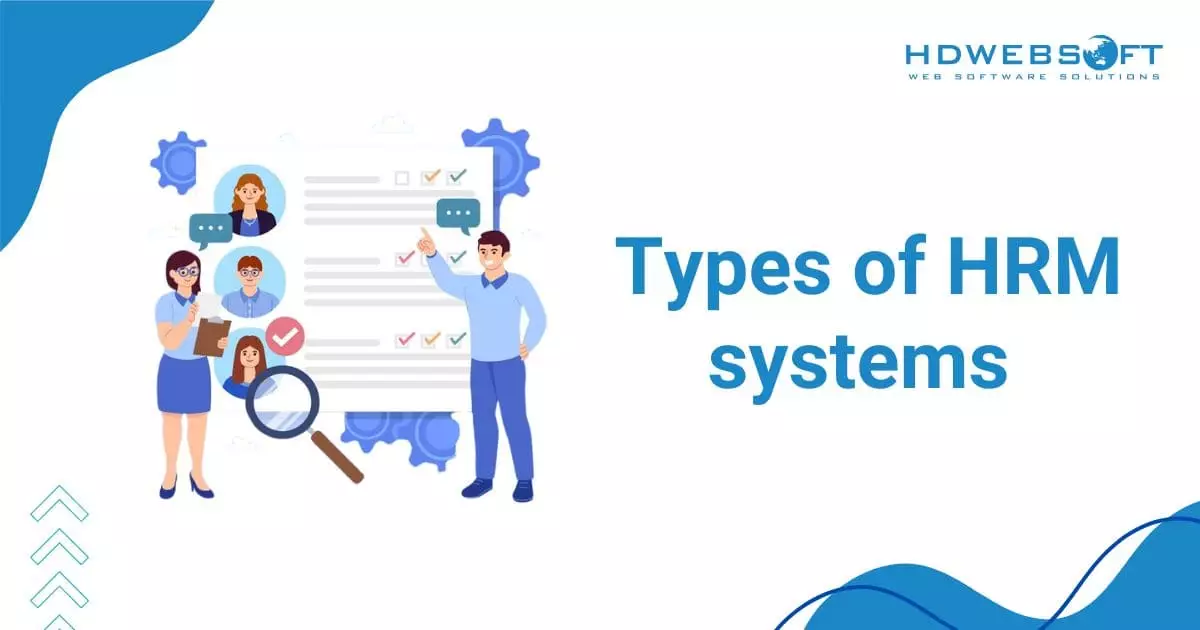
Nowadays, HR management system is available in a wide array of specialized formats, each designed to address specific aspects of HRM. Let’s explore the primary types of HRM systems and how they cater to different HR functions.
Recruitment Software
As one of the HRM systems, recruitment software is essential for companies looking to improve the way they manage their hiring processes. These systems support HR teams in creating job posts, reaching potential candidates, and organizing interview schedules.
Consequently, by automating many tasks within the recruitment process, businesses can save time and reduce the cost per hire. Meanwhile, they can also make sure they attract top talent efficiently.
Applicant Tracking Solutions (ATS)
Specifically, ATS is designed to focus on managing job applications. Through these tools, HR teams can track each candidate throughout the hiring journey, from initial application to final selection. Moreover, the solution makes it easy for HR to review applications, filter resumes, and communicate with applicants.
Ideally, this type of HRMS feature is valuable for larger businesses or those with high volumes of applicants. This is because it keeps the process organized and prevents promising candidates from slipping through the cracks.
Talent Acquisition Platforms
Often integrated into HRM systems, talent acquisition platforms help businesses build a long-term pipeline of high-quality candidates. Unlike basic recruitment software, talent acquisition platforms focus on cultivating relationships with potential employees. These are the types that aren’t active in job-seeking but represent strong future talent.
Likewise, through talent pools, proactive outreach, and relationship management tools, these systems allow HR to build a reserve of potential hires. This is especially efficient for hiring for hard-to-fill roles.
Workforce Management Tools
Staff management systems manage daily employee needs, focusing on time tracking, attendance, and shift planning. These tools streamline essential HR tasks for smoother operations. Additionally, they ensure that work hours are accurately logged, employee availability is respected, and the organization’s operational needs are met.
They are especially useful in industries with shift-based schedules or seasonal workforce fluctuations. Resultantly, HR is able to maintain optimal staffing levels without overburdening employees.
Learning and Development Software
Learning and development systems, also known as Learning Management Systems (LMS), are essential for businesses focused on upskilling their teams. Moreover, these HRM systems ensure that businesses comply with industry standards.
Hence, an LMS provides employees with access to training modules, certifications, and ongoing education programs. These systems allow HR to track employee progress, assess skill gaps, and offer customized learning paths. As a result, they foster a culture of continuous improvement within the organization.
Onboarding and Offboarding Solutions
A successful onboarding process sets the tone for a new employee’s experience within the company. At the same time, an efficient offboarding process maintains professionalism and compliance when an employee exits.
Simply put, onboarding systems simplify the integration of new hires by organizing tasks such as orientation sessions and training schedules. Meanwhile, offboarding systems help manage exit interviews, retrieve company property, and ensure final payments. They contribute to the preservation of a positive relationship with departing employees and safeguarding the company’s reputation.
Payroll and Benefits Administration
Managing payroll and benefits is a critical HR function. With that in mind, specialized systems for payroll and benefits make these processes easier and more accurate.
These HRM systems automate salary calculations, tax deductions, and benefits management, ensuring employees receive correct payments and benefits. Additionally, they support compliance with local tax laws and labor regulations. Ultimately, the risk of errors that could lead to legal consequences is minimized.
Scheduling Software
For companies that rely on shift-based work, scheduling software is a must-have. Scheduling systems allow managers to plan and assign shifts based on employee availability, business demands, and required skill sets. They also provide employees with a platform to view their schedules, request changes, or trade shifts with coworkers.
Owing to that, this type of HRM system is particularly useful in industries like healthcare, retail, and hospitality, where staffing needs can vary widely throughout the day.
A Comparison of Popular HRM Tools
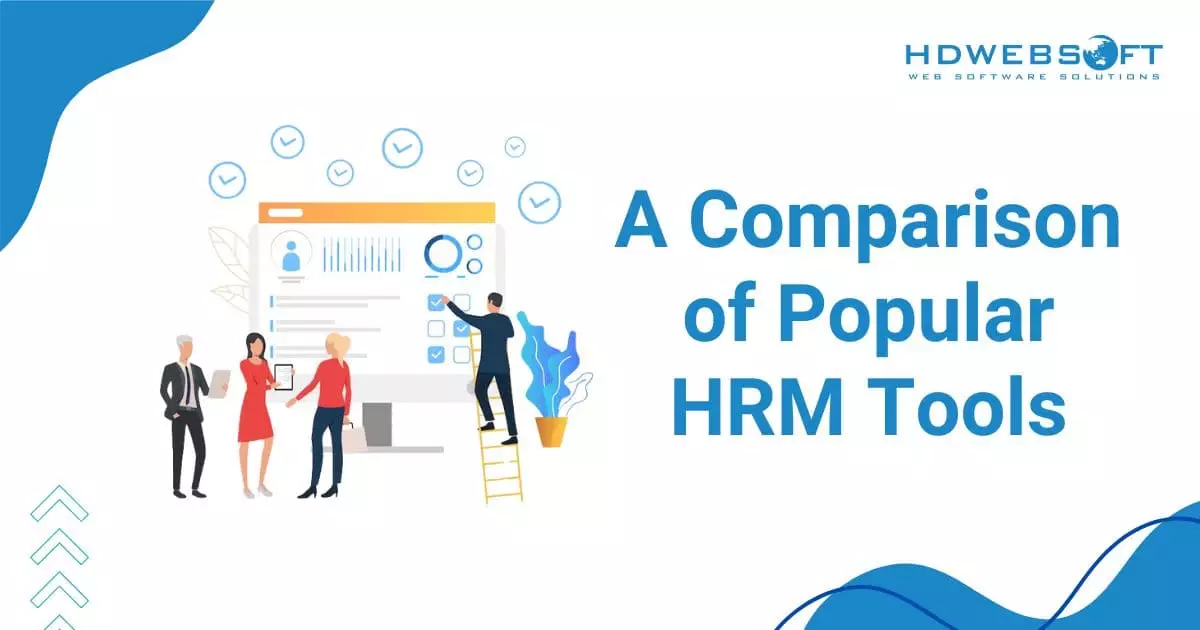
Here’s a detailed comparison table of popular HRM systems for each tool:
| HRM Tool | Key Features | Supported Platforms | Starting Price |
| Rippling |
| Web | From $8 per user/month |
| Monday.com |
| iOS, Android, Web | Starting from $8 per user/month |
| Oyster HR |
| Web, iOS | Starting from $29 per user/month |
| Patriot |
| Only web | Starting from $6 per month |
| ADP Workforce Now |
| Android, iOS, Web | Custom pricing (varies by features) |
| OnPay |
| Web | Starting from $40 per month + $6 per person |
| QuickBooks Time |
| iOS, Web, Android | Starting from $20 per month + $8 per person |
| Harvest |
| Web, iOS, Android | Starting from $12 per user/month |
Conclusion
In today’s fast-paced environment, HRM systems are more important than ever for companies that want to manage their workforce efficiently. Whether your business is small or growing, investing in the right HRM solution can benefit your business in many ways. By understanding your company’s unique HR needs and selecting the right tools, you can ensure that your HR processes are compliant and aligned with your business goals.
With over a decade of experience in custom software development, HDWEBSOFT has served as an HRM software development company on multiple occasions. These projects have highlighted the full benefits of effective HRM for business. Contact us today to learn more.


